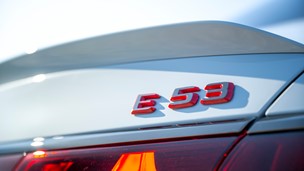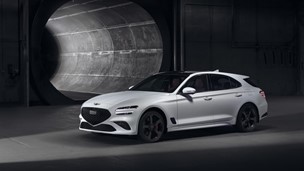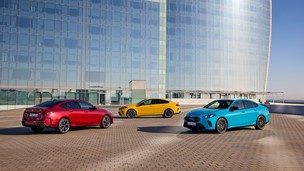Ford persevered longer than was good for it with the old indirect injection Endura diesels. The direct injection TDdi design is a far better engine, almost however you look at it - from the point of view of performance, economy, emission levels and throttle response. But, although Ford is right in saying it doesn't make as much noise as the Endura, it's not quiet by the standards of its best rivals.You don't get the same rattling-pots-and-pans effect at tickover that you did with the older Fiesta diesel, more a light rat-a-tat which is the sound signature of a direct injection design. It's always there around town, to a greater extent than in many of the Fiesta's rivals with common rail diesel engines, but it does fade to some extent as you get out on the open road.Ford hasn't so far installed this engine in any of the top-line Fiestas. The five-door LX test car is as high up the range as it comes, the other models available with it being the Encore and Finesse.I'm slightly underwhelmed by the latest Fiesta front-end look, but the interior is still pretty stylish, and you have to hand it to Ford for providing such generous front passenger kneeroom, thanks to the way the fascia sweeps forward on the left-hand side.There are many more recently designed cars in the class, and one area where the Fiesta shows its age is in rear cabin space. It's fairly tight compared with what's offered by some of the competition.The LX is the first car on the Fiesta ladder which comes with air conditioning as standard, but items like anti-lock brakes and a sunroof are extra. There are a couple of option packs at an additional charge, one with airbags at the sides and for the front passenger, the other including various security features you'd think might be in the standard specifiation.There's more stowage space for odds and ends in the latest Fiestas, as well as better seat trim, height adjustment for the driver's seat and a 60/40 split rear seat.The Fiesta has always been quite a nippy and well balanced car out on the open road, and you find that the TDdi is happy to keep pace as the driver gets a little more enthusiastic. Handling seems more agile than in some nose-heavier diesels, although this is by no means the sporting model of the Fiesta range.Extra mid-range torque - 103lb/ft at 2500rpm - makes this a far livelier car than the old Endura diesel, and to get the best out of it the plot is to keep the engine revving between 2500 and 4000rpm, just before the point at which it clutches its throat, makes strangling noises and falls over sideways.In that rev band, though, the TDdi will cover the ground pretty smartly. It's a much stronger hillclimber than the old diesel, too.Fiesta sales are dropping in mainland Europe, but UK registration figures show there's still a substantial market here for the car which has been the best seller in its class since the mid-1980s.Second opinion: I became quite fond of the oil-burning Fiesta, largely because it has surprisingly good performance and reasonably sharp handling, at least until the weight of the engine takes over and the front end refuses to turn any more. But there's no excuse for the noise, which I thought was unacceptable for a modern diesel. It's as Ford had made a half-hearted attempt to damp down the decibels before saying, "Oh, to hell with it, the mugs will buy the car however unpleasant it sounds." David Finlay. Engine 1753cc, 4cylinders Power 75bhp @4000rpm Torque ib/ft @2500rpm Transmission 5 speed manual Fuel/CO2 53.3mpg / 144g/km Acceleration 0-62mph: 14.3sec Top speed 103mph Price From £9991.00 approx Release date 01/02/2000

Our Rating



